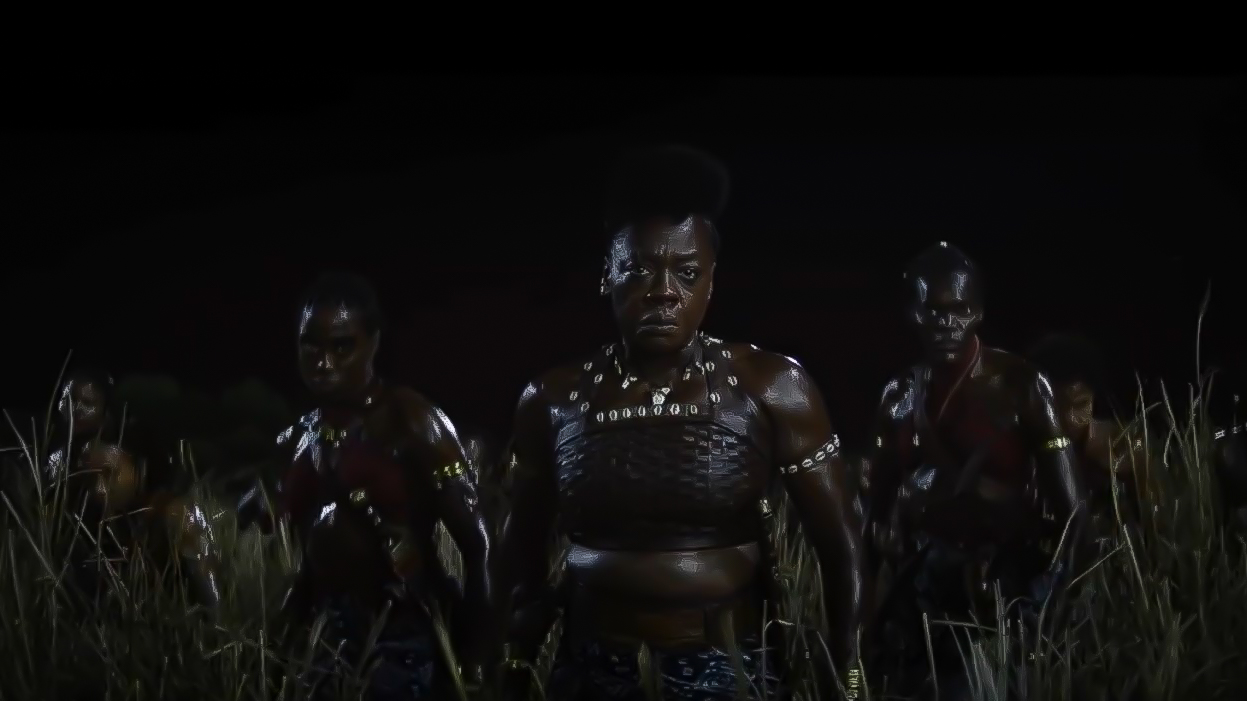Content warning: This article contains references to sexual violence.
The Woman King was just released on Netflix on Feb. 16 in the middle of Black History Month. While the film has powerful and fierce Black women at the center leading these rigorous battle scenes, what stood out the most to me was not the resilience displayed — it was the vulnerability.
Set in the ancient African kingdom of Dahomey, the Agojie are fierce women warriors who protect the king, played by John Boyega, and the rest of Dahomey. They are not to marry or have children. Leading the pack as the general is Nanisca, played by Viola Davis. Nanisca is introduced as a strong, fierce individual who doesn’t let anyone in. She liberates Dahomean women who were enslaved.
[The Clarice’s BlackLight Summit holds space for risk and rage to reach rejuvenation]
What we come to find out about Nanisca is that she was gang-raped when she was younger, and the hard exterior she has developed over the years is the result of this traumatic experience. This was a poignant part in her character development. While society often celebrates and amplifies resilience among Black people — especially Black women — it often comes with normalizing trauma and struggle that shouldn’t be normalized.
While the Agojie are training, they recruit a young soldier named Nawi, played by Thuso Mbedu, and she juxtaposes Nanisca in a lot of ways. She is younger and much more vulnerable than Nanisca. In a scene where Nanisca is reprimanding Nawi, Nanisca says, “Your tears mean nothing. To be a warrior, you must kill your tears.” But behind closed doors, Nanisca is reliving her trauma and abuse through dreams and dealing with it when no one is watching.
Unfortunately, this is another way Black women often deal with the pressure of having to show up as the “strong Black woman.” Because there is this societal pressure to be strong, there is often no room to show up as weak or vulnerable, and any trauma and pain has to be buried and ignored. Nanisca had every right to be vulnerable, but she never allowed herself to be.
[‘Here and Now’ art exhibit highlights work from women, artists of color]
When Nawi becomes a soldier for the Agojie, we see her vulnerability serve her as a soldier, even while in battle. One of the main principles the Agojie had to abide by was to not marry and thus not fall in love. However, Nawi ends up falling for Malik, a half-Dahomean who accompanies Portuguese slave traders.
While the strength of women is clearly displayed in this film, there are definitely moments of softness and vulnerability that seep through. The resilience Black women often exude comes from a legacy of having to endure patriarchy, racism and a myriad of other forms of violence. The resilience is beautiful, but the vulnerability is worth celebrating too.



